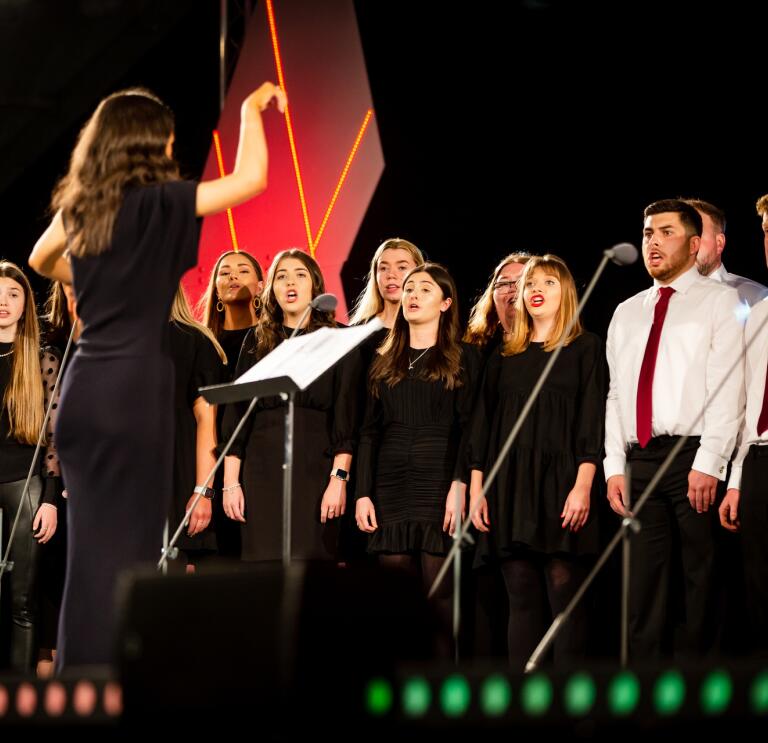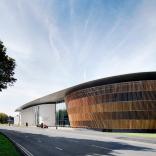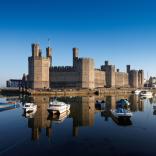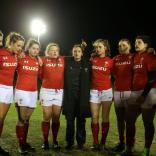In 2022, the world got to enjoy the Welsh national anthem as it was played for the first time at a football World Cup. But where does the song come from, and what do the lyrics mean?
An epic anthem - and its origin story
The younger James, a harpist who often played in the inns of his home town, is said to have composed the music while walking along the banks of the River Rhondda. Returning home, he asked his father to write some words to accompany the tune.
By the next morning, Evan had come up with three verses that fitted perfectly with the melody. Some have suggested the emotionally charged lyrics were a response to his brother, who had recently emigrated to America and was keen for Evan to leave Wales and join him.
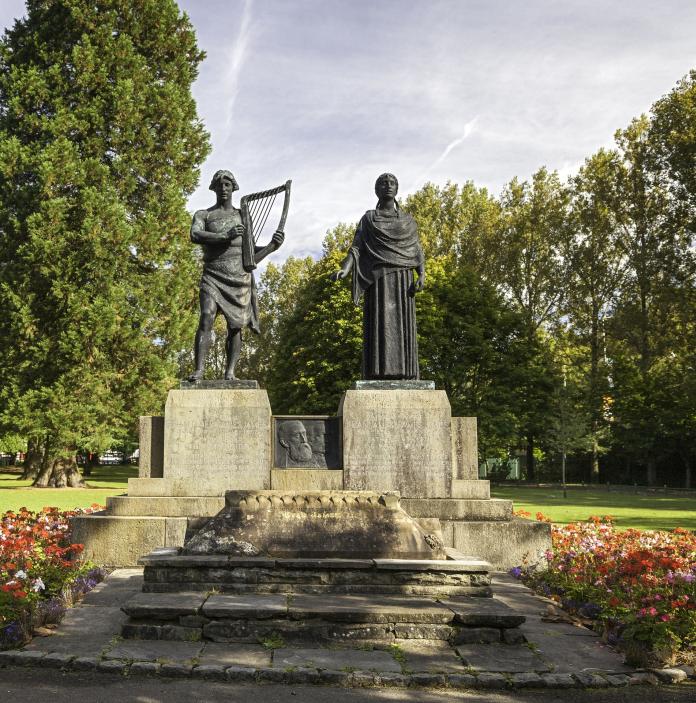
Just a week after the words and music were written, the song – then titled Glan Rhondda (Banks of the Rhondda) – had its first public airing. The honour of that performance fell to the 16-year-old Elizabeth John at Tabor Chapel, Maesteg.
The fame of the uplifting composition soon spread. It was published in a bestselling collection of Welsh songs, and became a favourite at eisteddfodau and other patriotic occasions. Hen Wlad Fy Nhadau gradually became accepted as Wales’ national anthem – though to this day, it has no official status as such.
James James’s tune soon found favour elsewhere in the Celtic world, too. His melody is used for the Cornish anthem Bro Goth agan Tasow, as well as Brittany’s national song, Bro Gozh ma Zadoù.
The anthem is now synonymous with Welsh sporting events, particularly rugby and football internationals. It’s a tradition that dates back to 1905, when the rugby union teams of Wales and New Zealand were about to clash for the first time at Cardiff Arms Park.
After the All Blacks finished their fearsome war dance, the haka, the Welsh crowd struck back with a spirited rendition of the song. It’s the first recorded instance of a national anthem being sung before an international sporting fixture. And that time, it worked: Wales won 3-0.
The second line of the anthem contains a tribute to “beirdd a chantorion, enwogion o fri”: poets, singers and people of fame. Here’s what three such representatives of modern-day Wales think of their national song.
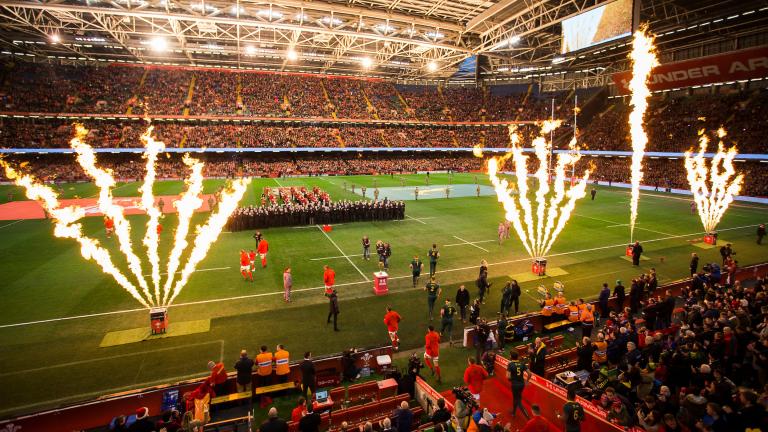
Hen Wlad Fy Nhadau - it's an epic anthem. But don't just take our word for it. We've asked some of our friends from the arts and sports worlds to tell us what the anthem means to them.
Ifor ap Glyn is the national poet of Wales, and a two-time winner of the Crown for free verse at the National Eisteddfod.
Although the anthem was written over 160 years ago, even then its language would have seemed a little archaic to those who spoke Welsh every day. But it’s the style that was expected of writers at the time – that’s how they sought to give their work poetic gravitas. And we’ve certainly grown used to those words, and like a comfortable jacket, they hug the music in all the right places.
In the end, it’s the tune that carries it – the way it builds from a dignified beginning to the rousing notes of the end. The last three lines from “Gwlad! Gwlad!” to “O, bydded i’r hen iaith barhau!” combine celebration and supplication in a way that never fails to make my back straighten and my neck prickle.
Tim Rhys-Evans founded one of Wales’ most successful modern choirs, Only Men Aloud, in 2000. He is also the founder and artistic director of the Aloud Charity with its choirs Only Boys Aloud, Only Kids Aloud and the Only Boys Aloud Academi.
It’s one of the most stirring anthems from the very start. The first phrase gradually rises through a whole octave, and this strident opening sets up the mood of the anthem. The double chorus is particularly stirring, with its held notes on the word “Gwlad”. In the repeat of the chorus, many people sing the final phrase ("...i’r hen iaith barhau") an octave higher, and when you hear a whole stadium really tanking those top notes, it’s so exciting.
Even though I’m a musician, what moves me most are words. The fact that the first people to be mentioned are poets and singers, not warriors or soldiers, is wonderful. For an anthem to prioritise culture so strongly says a lot about us as a country. Our poetry and music are a huge part of why we can punch above our weight as a nation, and our anthem sets out our stall as a land of song.
TIM RHYS-EVANS, ONLY MEN ALOUDOur poetry and music are a huge part of why we can punch above our weight as a nation, and our anthem sets out our stall as a land of song."
Caryl Thomas plays loosehead prop for the Wales women’s rugby union team, for which she has won more than 50 international caps.
The first time I heard Hen Wlad Fy Nhadau was when I sang it in primary school. I’ve always been a passionate, patriotic person, and the anthem tied in to that.
Now it’s one of the best bits about playing for my country. It’s such a privilege, being able to stand there with your teammates and sing in front of your crowd and your family. It gets the adrenaline pumping, too. When you don’t sing, I think it takes away from the game.
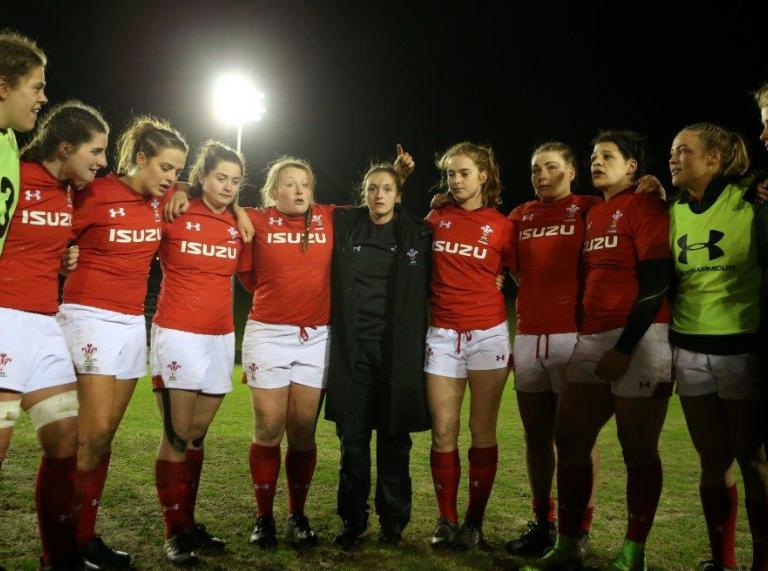
It doesn’t matter if I’m in tune or not when I’m belting it out. When we get to “Gwlad, Gwlad, pleidiol wyf i’m gwlad”, it feels like you’re standing up for your nation. That’s a great feeling to have, and it makes me incredibly proud.
Lyrics
Mae hen wlad fy nhadau yn annwyl i mi,
Gwlad beirdd a chantorion, enwogion o fri;
Ei gwrol ryfelwyr, gwladgarwyr tra mâd,
Tros ryddid gollasant eu gwaed.
Chorus:
Gwlad, Gwlad, pleidiol wyf i'm gwlad,
Tra môr yn fur i'r bur hoff bau,
O bydded i'r heniaith barhau.
Hen Gymru fynyddig, paradwys y bardd;
Pob dyffryn, pob clogwyn, i'm golwg sydd hardd
Trwy deimlad gwladgarol, mor swynol yw si
Ei nentydd, afonydd, i fi.
Chorus
Os treisiodd y gelyn fy ngwlad dan ei droed,
Mae hen iaith y Cymry mor fyw ag erioed,
Ni luddiwyd yr awen gan erchyll law brad,
Na thelyn berseiniol fy ngwlad.
Chorus
English translation
The title translates as Land of My Fathers.
Lyrics:
This land of my fathers is dear to me
Land of poets and singers, and people of stature
Her brave warriors, fine patriots
Shed their blood for freedom
Chorus:
Land! Land! I am true to my land!
As long as the sea serves as a wall for this pure, dear land
May the language endure for ever.
Old land of the mountains, paradise of the poets,
Every valley, every cliff a beauty guards;
Through love of my country, enchanting voices will be
Her streams and rivers to me.
Chorus
Though the enemy have trampled my country underfoot,
The old language of the Welsh knows no retreat,
The spirit is not hindered by the treacherous hand
Nor silenced the sweet harp of my land.
Chorus
